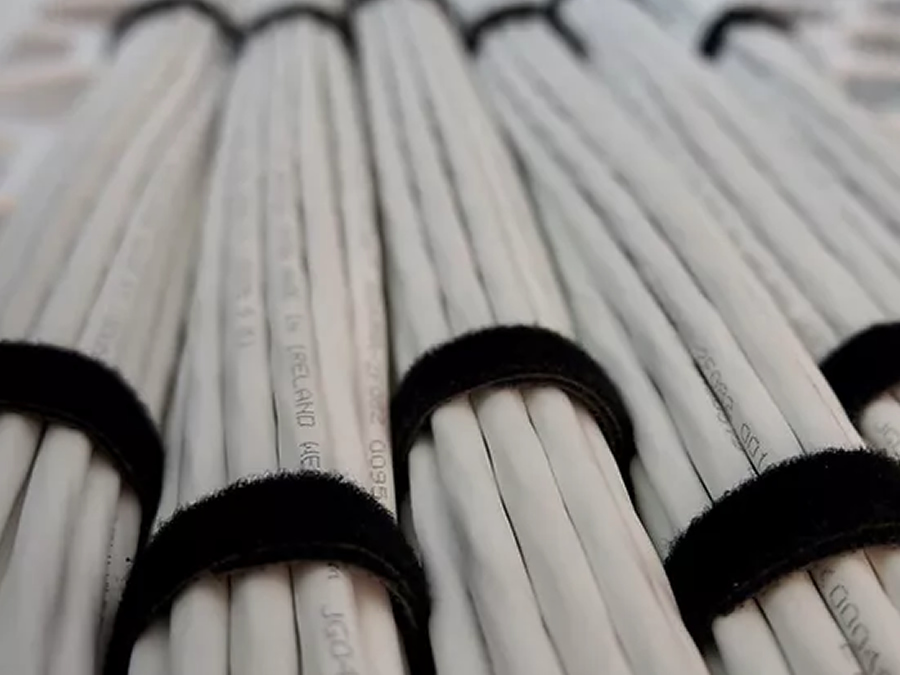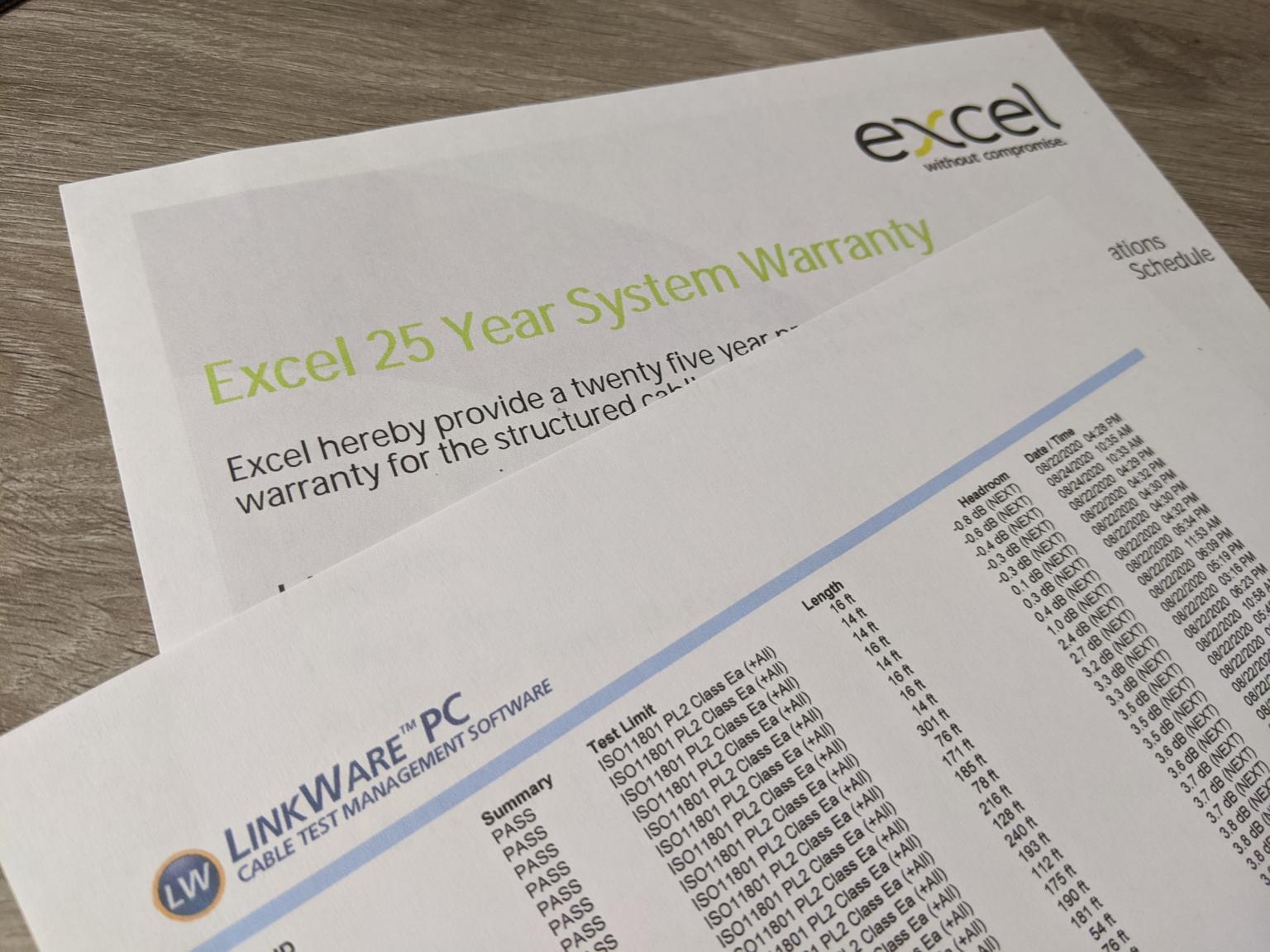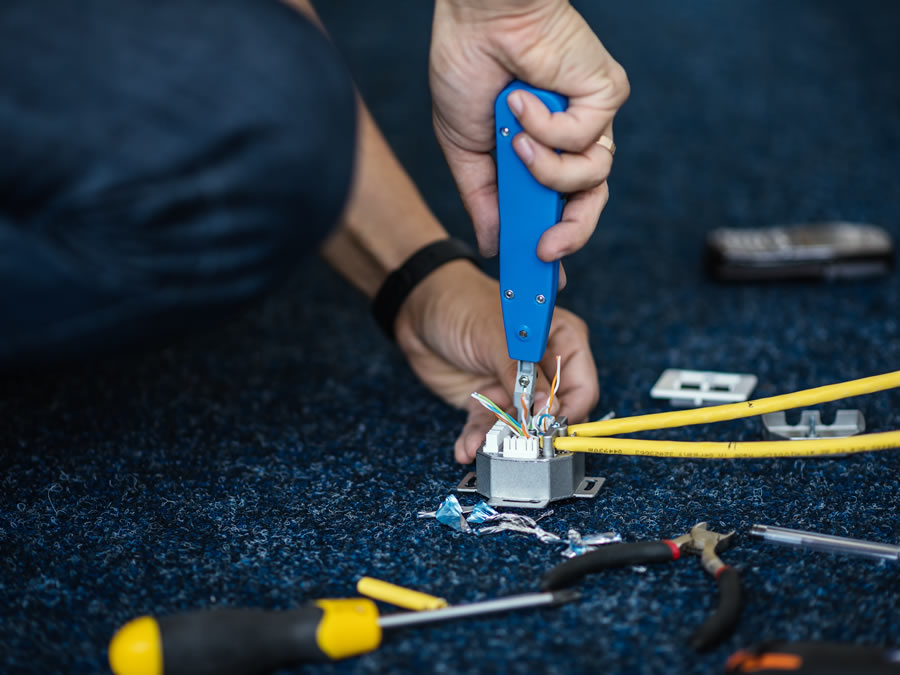Blog
It’s often the case that electricians are criticized on their competence when it comes to installing data cabling. Due to the Construction Skills Certification Scheme (CSCS) being transferred to the Electrotechnical Certification Scheme (ECS), individuals are required to have the relevant qualifications based on their occupation.
Most project tender and bid specifications now stipulate that the structured cabling contractor must be accredited by the cabling manufacturer and are required to hold the necessary qualifications to design, install and test data communications cabling. This ensures the customer that the installer accurately understands all the required components of compliance and the latest industry standards.
While data cabling is still offered as a service by many electricians, who while they may have the technical ability, typically don’t have the specific qualifications or industry training to match. To put it simply, in layman’s terms, you wouldn’t use a plumber to install a boiler that isn’t gas registered, so why would you consider the same scenario when deciding on suppliers for business-critical facilities.
However, comparing a quote from an electrician in comparison to a network specialist, the cost may seem significantly lower. Why is this?

Cost over Quality
This may seem fairly obvious although cutting corners on the quality of materials can have a detrimental effect on your cabling network. Many electricians will often use whatever cable is cheapest and available from their local electrical wholesaler. These cables are often from obscure manufacturers who have no formal compliant certification for their products.
The quality and performance of your cabling system suffers immensely as a result of cheap cabling, resulting in slow data transmission speeds, alien crosstalk (interference from other nearby cables) and increased risk of fire hazards.
Since the amendment of BS6701, data cables are now required to be labelled with a Construction Product Regulation (CPR) EuroClass rating to indicate its fire properties. This change means that all data cabling installations must meet a minimum EuroClass of Cca, S1b, D2, a2 construction in the permanent installation of both copper and fibre optic cables within a building.
Consequently, all cabling installers, including network specialists and electricians are required to comply with CPR and need to ensure that all cables used are in-line with the specification and tested in accordance to the array of standards. Click here to find out more about CPR relating to data cabling.

Warranty
Most cabling manufacturers offer a free 25-year warranty as standard to end-users, although this requires the cabling installer to follow an application process based around technical and commercial capability and, commitment to undergo extensive training and sit an exam to demonstrate a complete understanding of the cabling manufacturers products and how to design, install and test systems in accordance with the manufacturer's guidelines, best practice and above all standards compliance.
Since not many electricians have the required accreditations to apply for a manufacturer’s warranty, the customer has no guarantee and potentially having to pay for labour costs and replacement of materials in the future. Click here to find out more about cabling warranties.

Testing and Certification
Following on from the above, most cabling manufacturers will only issue a warranty upon receiving sufficient documented proof of test results that certify all installed cables have been tested in accordance to the manufacturers standards and using industry approved equipment.
Cable testing is a thorough process performed by a trained professional and requires using certification products such as Fluke Networks, the worldwide leader in tools for data cabling professionals. Cable certification products are not cheap pieces of equipment either and can cost anywhere between £6,500 for a copper only and up to £25,000 for both copper and fibre.
Due to the cost of this equipment, it’s highly unlikely for an electrician to invest in these state-of-the-art cabling essentials; meaning the customer will be left with a poorly installed, uncertified cabling system. However, electricians may utilize certified cabling specialists for this resource.

Standards
As few electricians are aware of the relevant industry standards defined by BSI, ISO, CENELEC, TIA/EIA, many are incompetent of correctly designing and installing data cabling and often have poor termination practices.
A common poor practice from electricians is excessive untwisting of pairs upon terminations. This practice is in conflict with installation recommendations as per TIA/EIA-568 commercial building wiring standard and will introduce Near-end Cross Talk (NEXT) and most likely fail upon testing and certification.
For ultimate cable performance, cable twists should be maintained as close as possible to the point of termination. To find out more about Near-end Cross Talk click here.
Comfinity works exclusively through subcontractor partnerships with many leading mechanical and electrical contractors, supporting them with complete structured cabling solutions from the initial tender stage right through to the final handover.
Whether you require labour only, consultancy or are looking for a quotation for a current project tender, Comfinity can offer price competitive packages covering all aspects of data cabling from design and installation to testing and certification.
Add a comment:
Get in Touch
Want to know what we can do for you? Please use this form to contact our team.






